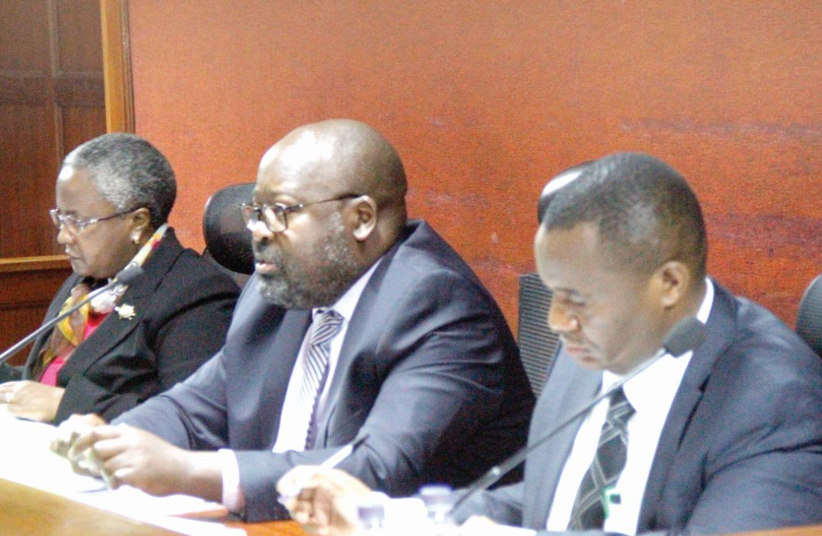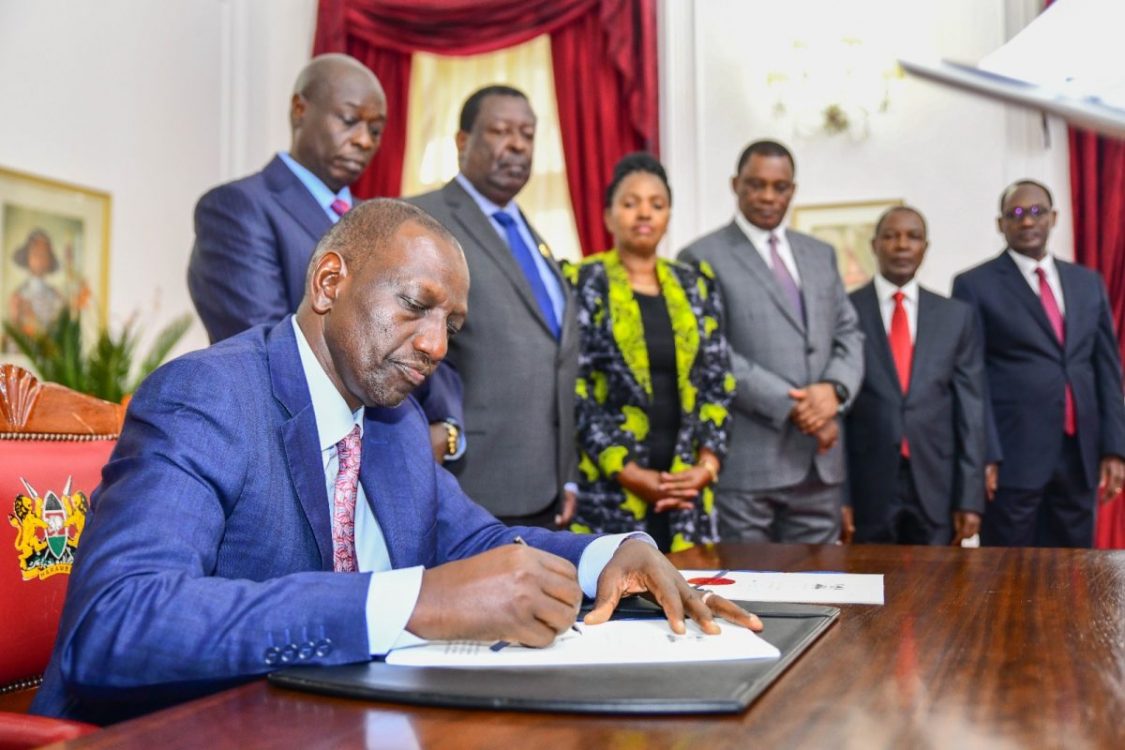Court suspends implementation of Finance Act

President William Ruto‘s administration has suffered a major setback after the High Court on Friday, June 30 issued orders suspending the further implementation of the new Finance Act, 2023.
In a brief ruling rendered by Justice Mugure Thande of Milimani Constitution and Human Rights Division, the court barred Treasury CS Njuguna Ndung’u and Attorney-General Justin Muturi and the Kenya Revenue Authority from levying, enforcing or further implementing the Act that is scheduled to take effect on Saturday, July 1, 2023, pending the hearing of a lawsuit filed by Busia Senator Okiya Omtatah.
“I am satisfied that the application meets the test for conservatory orders and I do grant a conservatory order suspending the Finance Act, 2023,” Justice Thande ordered.
“An interim order of prohibition prohibiting the respondents and interested parties or their agents howsoever acting from giving effect to the Finance Act, 2023 pending the hearing and determination of the case,” the judge added.
The orders were issued after Omtatah and four other activists filed an application under a certificate of urgency seeking to stop the implementation of Finance Act 2023 which was signed into law by President Ruto on Monday terming it unconstitutional.
While seeking interim orders, the five activists informed the Judge that the law introduced by the Kenya Kwanza Administration amounts to forcing Kenyans to pay taxes irregularly without justification.
“The Finance Act 2023 is unconstitutional both due to how it was enacted in violation of the Constitution and the Public Finance Management Act, and due to its contents,” Omtatah informed the Judge.
The petitioners contend that the taxes imposed by the Finance Act 2023 are invalid, null and void for violating Article 24 of the Constitution.
“Sections 30, 33, 34, 36, 73, 74, 76, 78 and 79 of the Finance Bill 2023 pose a threat to the Constitution and should be quashed,” Omtatah states.
Omtatah, and his co-petitioners Eliud Matindi, Micheal Kojo, Benson Otieno and Blair Oigoro further argued that Members of Parliament totally and miserably on June 22, 2023, failed in their mandate to protect Kenyans from unlawful, unconstitutional, and oppressive taxation when they approved the bill.
“The National Assembly sneaked many provisions of the law into the approved Bill on the floor of the House without subjecting them to public participation, which violated Articles 10[2], 118 and 201 of the Constitution,” the activist states.
The five argue that the Act is illegal as it was approved by the National Assembly without the consultation of the Senate.
They argue that the Speaker of the National Assembly Moses Wetang’ula violated Articles 109(3) & (4) of the Constitution by causing the Finance Bill, 2023 to be considered only in the National Assembly yet it is a Bill concerning county governments.
“Failure to submit to seek the concurrence of the Speaker of the Senate on whether the Finance Bill, 2023 was a bill that concerns counties violated Article 110(3) of the Constitution,” say the activists.













